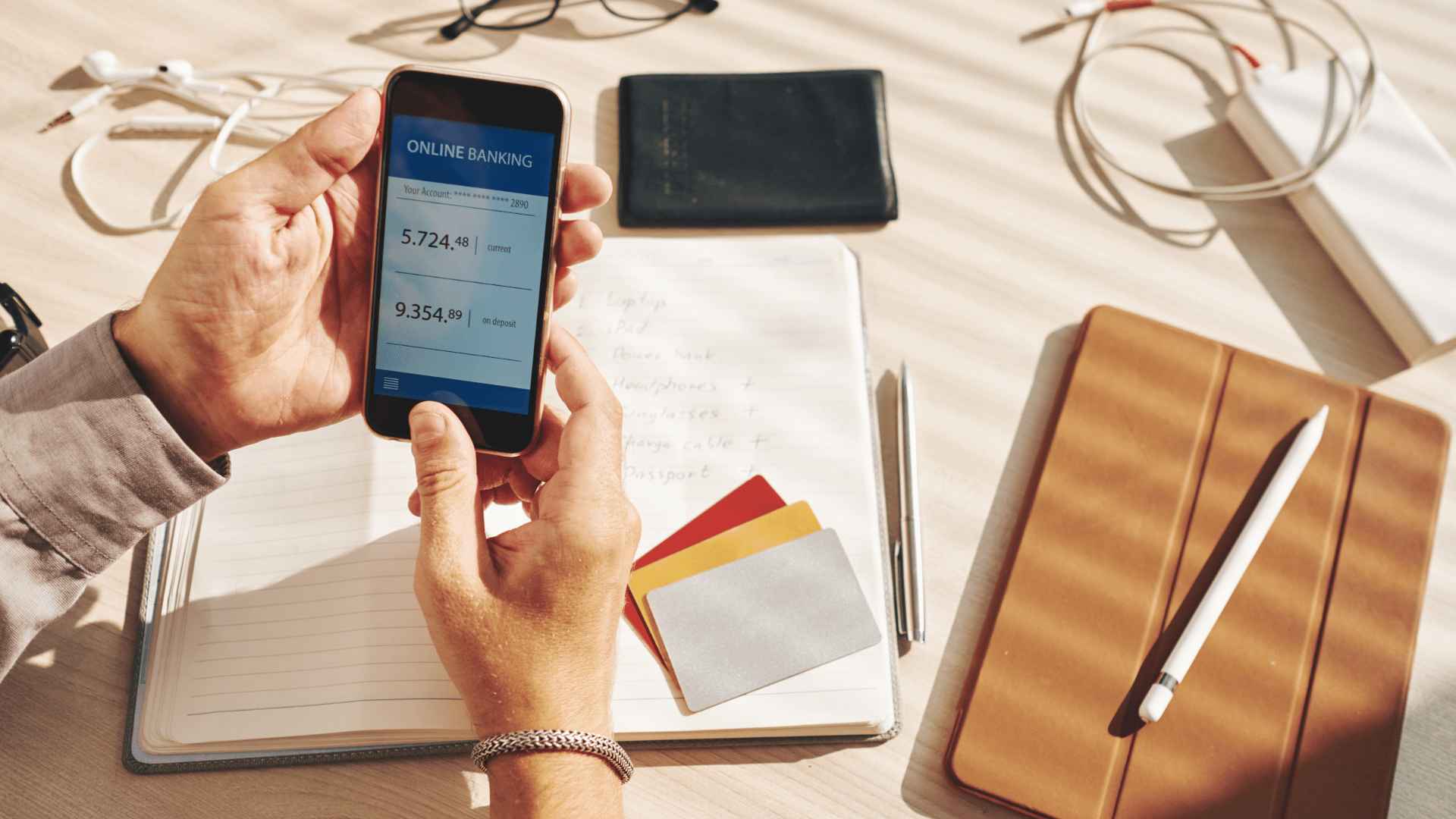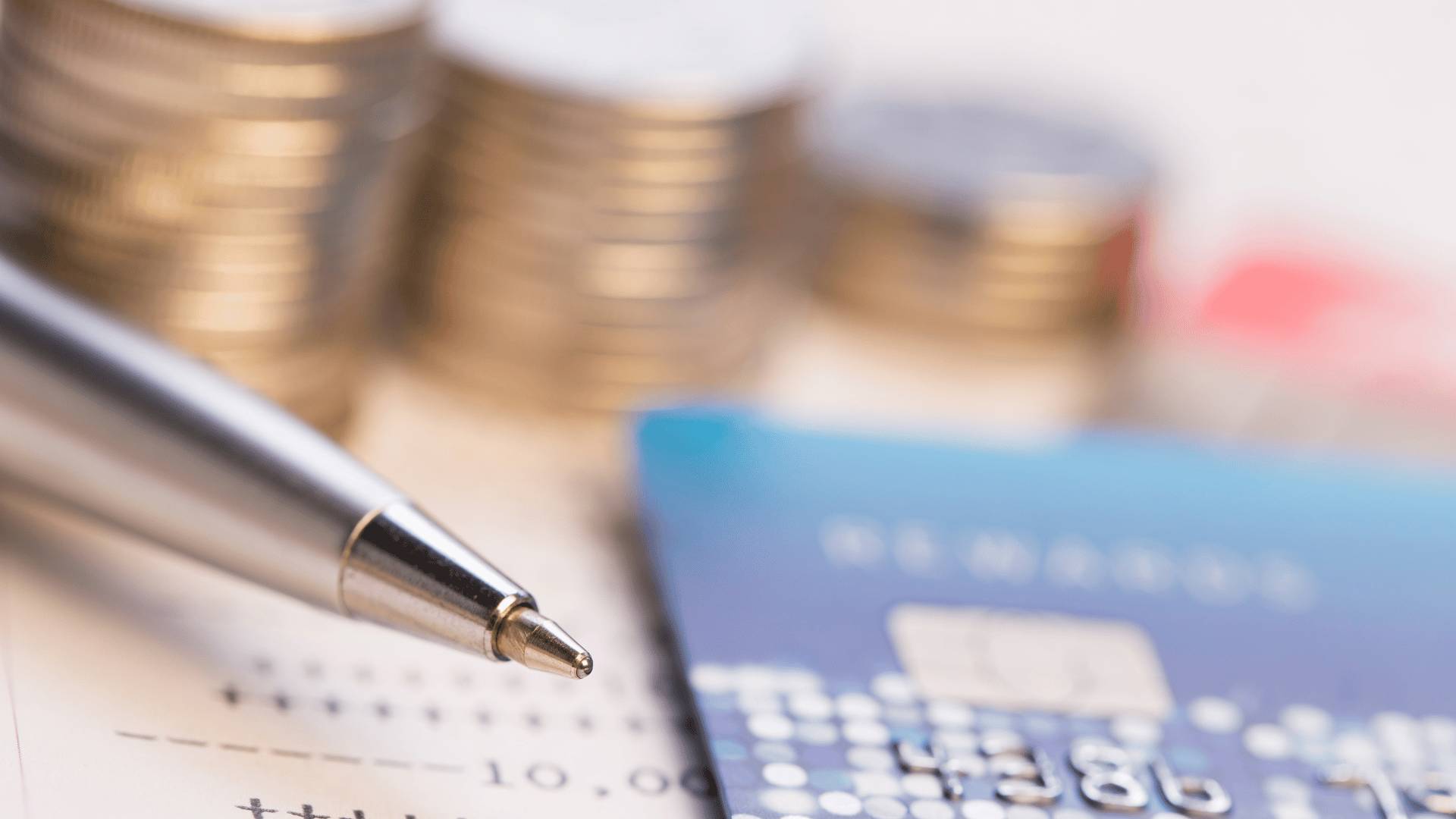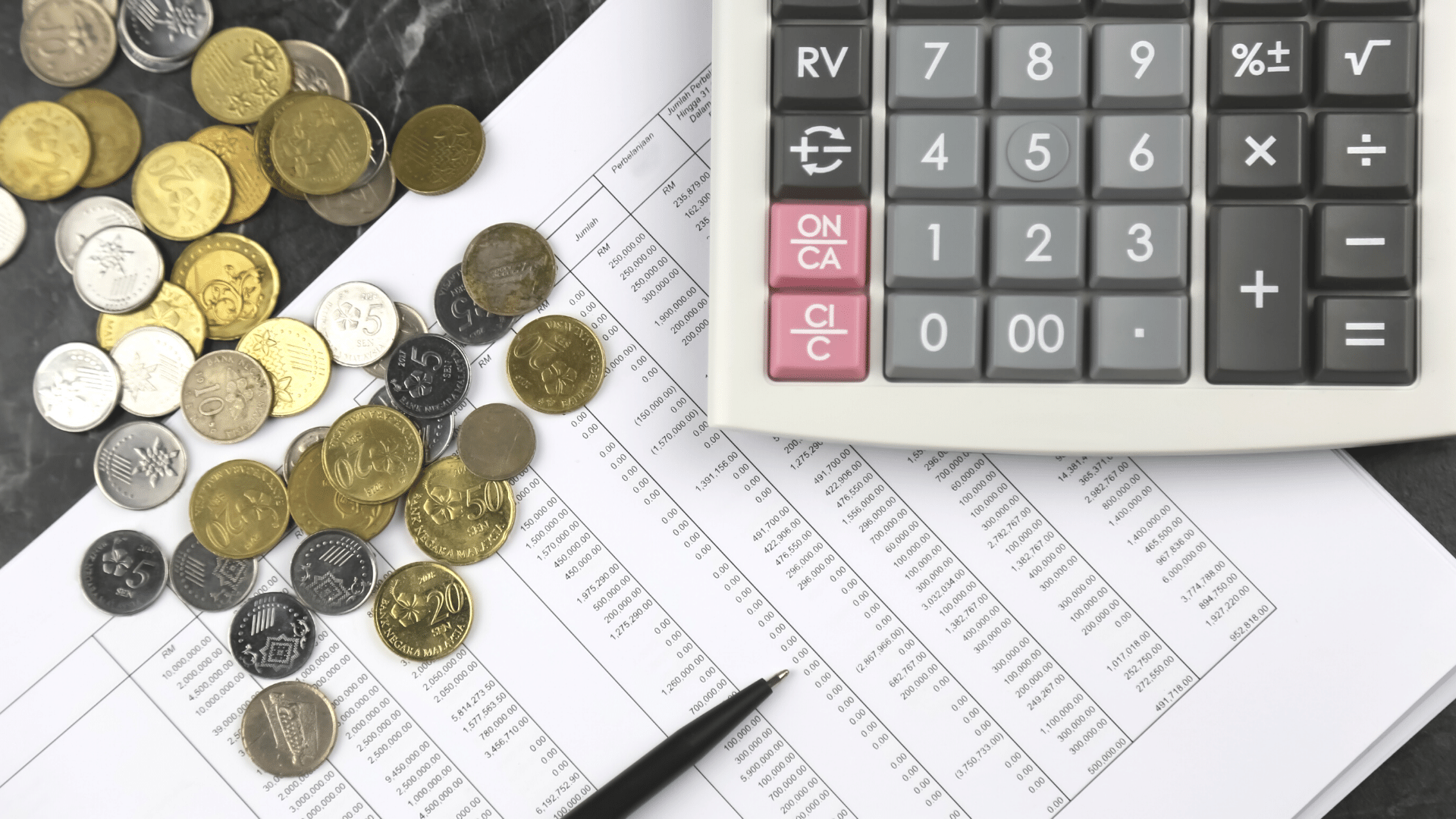In the fast-paced world of digital finance, where fintech and online banking are on the rise, the significance of traditional checking accounts may seem diminished.
However, don't be too quick to overlook the benefits they offer. Despite the emergence of new financial technologies, opening a checking account today still holds numerous advantages.
Some checking account products require PHP 25,000 to maintain a balance and offer interest for a monthly average daily balance of PHP 50,000. If you want a checking account that has a low opening balance requirement, you can open a regular checking account, which also comes with a debit card.
Valid IDs, or even one valid ID, are needed when setting up an account. This is the application form provided by your chosen bank. Some banks tend to accept just PHP, or Philippine pesos, when applying for an account opening.
Universal Acceptance
In today's digital age, digital payment methods such as mobile wallets, online payment platforms, and contactless cards have undoubtedly gained popularity. They offer convenience and speed, allowing for quick and secure transactions. However, it is important to recognize that not all merchants and businesses have fully embraced these digital payment options.
One of the key advantages of having a checking account is that it provides a universally accepted payment method. Unlike certain digital payment passbooks and debit card methods that may have limited acceptance, a checking account allows you to make purchases at any physical store that accepts a passbook, debit card, or check. This means you have the freedom to shop at a wide range of establishments without worrying about whether they support the specific passbook, debit card, or digital payment methods you use.
Furthermore, a check will open an account that ensures seamless transactions across various scenarios. Whether you are paying bills, making in-store or online purchases together, or transferring funds to friends or family, a checking or savings account upon opening acts as a reliable intermediary. It allows you to write checks, use a debit card, or conduct electronic transfers to complete your transactions effortlessly.
When it comes to paying bills, many companies still prefer traditional payment methods such as checks or direct bank transfers. By having a checking account, you can easily write checks for rent, utilities, or other recurring expenses, ensuring that your payments are processed smoothly. Additionally, some individuals or businesses may prefer receiving payments through direct bank transfers, and a checking account provides the necessary infrastructure to facilitate these transactions.
Moreover, having an account opened, opening a checking account, or being an account holder provides peace of mind when it comes to transferring funds. While digital payment platforms offer a convenient way for peer-to-peer transfers, not all recipients may have access to the same platform or be comfortable using it. With a checking account, you can initiate bank-to-bank transfers anywhere, allowing you to send funds securely and efficiently to anyone, regardless of their preferred payment methods.
Cash Withdrawals
Despite the increasing prevalence of digital payment methods, cash continues to hold relevance in certain situations. While it's true that many transactions can be conveniently conducted using digital platforms, there are still instances where having access to cash is essential. This is where having a checking account becomes valuable.
One of the primary benefits of having a checking account is the ability to withdraw cash from savings accounts or ATMs. ATMs and bank accounts are widely available and provide quick and easy access to physical currency. This flexibility becomes particularly valuable in emergency situations or instances where digital payment options are unavailable or inconvenient.
In emergencies, such as natural disasters or power outages, digital payment systems may be temporarily unavailable or unreliable. In such cases, having a checking account allows you to access cash and make necessary purchases or handle expenses without relying solely on digital transactions. Whether it's buying essential supplies, paying for services that can only accept cash, or navigating a situation where electronic payment systems are compromised, cash can provide a reliable fallback option.
Moreover, there are scenarios where digital payment options may not be accepted or feasible. Some smaller businesses, street vendors, or local markets may still primarily operate on a cash-only basis. Additionally, certain services, such as other transactions such as tipping in certain industries or making payments at an ATM card for online purchases in situations where connectivity is limited (e.g., remote areas, traveling), often require cash. In these instances, having a checking account allows you to withdraw the necessary cash and complete transactions smoothly.
Furthermore, cash can be useful for other transactions, such as managing personal budgets or controlling spending habits. By withdrawing cash, you can set a specific budget for discretionary expenses and physically monitor your spending. This tangible connection to your finances can help you stay accountable and make more conscious spending decisions.
Check Writing
While the use of checks may have diminished in recent years due to the rise of digital payment methods, they still retain their reliability and usefulness in specific situations. Opening a checking account provides you with the ability to write checks, offering a secure and traceable means of payment that can be invaluable when digital alternatives to paying bills are not feasible or preferred.
One significant advantage of writing checks is the level of security they offer. When you write a check, it serves as a legal document that provides proof of payment. Each check is uniquely numbered and contains information about the payee, date, and amount. This level of detail ensures a clear record of the transaction, giving you a reliable means to track and reconcile your expenses. In cases where disputes or discrepancies arise, having a paper trail provided by check payments can be instrumental in resolving such issues.
In certain situations, digital payment methods may not be practical or readily available. For instance, when dealing with smaller businesses, independent contractors, or individuals who prefer traditional payment methods, checks can be the preferred mode of payment. Rent payments, utility bills, and services like lawn care or home repairs often continue to rely on check-based transactions. By having a checking account, you ensure that you have the means to make these payments without inconvenience or the need for alternative arrangements.
Checks also offer a level of flexibility when it comes to timing payments. With digital payment methods, funds are often transferred immediately after opening an account, leaving you with little control over when the money is deducted from your account. By writing a check, you have the ability to time your payments strategically, taking into account factors such as cash flow, interest rates, due dates, interest rates, or any specific arrangements you may have with the security bank or the recipient.
Additionally, checks can be particularly convenient for personal payments or situations where direct bank transfers may not be feasible. For instance, if you want to gift money or reimburse a friend or family member, writing a check to a security bank provides a tangible and straightforward solution. It eliminates the need for sharing sensitive bank account information with the security bank and allows the recipient to deposit the check at the security bank at their convenience.
It's important to note that while checks offer security and traceability over cashless payments, they do require proper management and careful record-keeping. It's essential to keep track of check numbers, dates, and amounts to ensure accurate bookkeeping and avoid any potential discrepancies.
Personal Financial Management
Opening a checking account not only provides an initial deposit and a means for transactions but also a low interest rate. A low opening balance also grants access to an array of financial management tools that can greatly benefit your financial well-being. Banks offer online banking platforms and mobile apps that empower you to conveniently and effectively manage your finances, offering real-time insights and promoting financial discipline.
One of the primary advantages of these financial management tools is the ability to track your expenses. With online banking platforms and mobile apps, you can monitor your transactions, categorize your expenses, and gain a clear understanding of where your money is going. This visibility allows you to identify spending patterns, pinpoint areas where you can cut back, and make informed decisions about your financial priorities.
In addition to expense tracking and maintaining the balance below, these tools also enable you to monitor your account activity in real-time. You can keep a close eye on deposits, withdrawals, opening balances, and any suspicious or unauthorized transactions. This level of vigilance helps you detect and address any fraudulent activity promptly, ensuring the security of your funds.
Establishing budgets is made easier with the financial management tools provided by checking accounts. You can set budgeting goals, allocate funds to different categories, and track your progress toward meeting those goals. These tools often offer visual representations of your budget, such as charts or graphs, which make it easier to grasp your financial standing and make necessary adjustments to stay on track.
Furthermore, online banking platforms and mobile apps offer features like e-statements, account opening and maintenance, and transaction history. You can access your account statements electronically, maintaining balance, reducing the clutter of paper statements, and ensuring easy access to past records. Transaction history allows you to open an account, review previous transactions, reconcile your accounts, and maintain accurate financial records for tax purposes or personal reference.
Another significant benefit of these tools is the convenience they offer. You can access and manage your account anytime, anywhere, as long as you have an internet connection. This flexibility empowers you to stay on top of your finances, even while on the go. Whether you need to transfer funds, pay bills, or monitor your balances, these tools make it possible with just a few clicks or taps on your device.
Direct Deposit and Automatic Payments
Direct deposit and automatic bill payments are two significant conveniences offered by checking bank accounts, which are often the best bank ever, the best bank for simplifying your financial management, and the best bank for saving you time and effort.
Direct deposit allows you to have your salary, government benefits, or any other regular income sources directly credited to your checking account. This eliminates the need for physical checks or manual depositing, streamlining the process and ensuring that your funds are available in your account on time. Direct deposit offers convenience, reliability, and faster access to your money compared to traditional payment methods.
Setting up automatic bill payments is another valuable feature of checking and savings accounts. By linking your recurring expenses, such as utility bills, rent, or mortgage payments, to your checking or savings account, you can establish automatic payments. This means that the funds are automatically deducted from your savings account and transferred to the designated recipients on specified due dates. Automatic bill payments help you avoid late fees, penalties, or the hassle of remembering multiple payment dates. They ensure that your bills are paid on time, providing peace of mind and simplifying your financial responsibilities.
Both direct deposit and automatic bill payments contribute to better financial organization and efficiency. With direct deposit, you don't have to worry about physically depositing checks or waiting for them to clear. Your funds are readily available, allowing you to access and utilize them without delay. Automatic bill payments reduce the risk of forgetting or missing payments, which can negatively impact your credit score or result in additional charges. These features promote financial stability and help you stay on top of your financial obligations.
Furthermore, the convenience of using cashless payments through direct deposit and automatic bill payments extends beyond saving time and effort. They also enhance financial security by reducing the need for physical, post-dated checks and reducing the risk of loss, theft, or fraudulent activities associated with paper transactions and post-dated checks. Electronic transfers through direct deposit and automatic bill payments offer a more secure and traceable method of handling your finances.
It's important to note that while direct deposit and automatic bill payments offer significant advantages to maintaining balances, it's essential to maintain sufficient funds in your checking or savings account to cover the scheduled transactions. Regularly monitoring your checking and savings accounts and balances and ensuring that you have enough funds in your savings account to cover your expenses will help you avoid potential overdraft fees or payment rejections.
Building Credit History
Relationships can be one of them. Demonstrating responsible account management with your checking account can increase your chances of being approved for a credit card, especially if you have a limited credit history or are building your credit from scratch.
Furthermore, a checking account can serve as a gateway to other financial services and products that can contribute to your credit-building journey. As you establish a positive track record with your checking account, you may become eligible for other banking services, such as savings accounts, certificates of deposit (CDs), or even secured credit cards. These additional financial tools can further strengthen your creditworthiness and contribute to a positive credit history.
It's important to note that while opening a checking account or a savings account is a step toward building a positive credit history, it's essential to practice responsible financial habits beyond just the initial deposit. Open an account by opening and maintaining a balance on the initial deposit account. This includes making timely payments on any loans or credit cards you have, keeping credit card balances low, and managing your overall debt responsibly.
Personalized Services and Support
While the rise of digital banking has brought about convenience and accessibility, traditional banks still offer personalized services and in-person support that can be invaluable in complex financial situations. Having a checking account with a traditional bank grants you access to experienced professionals who can provide guidance tailored to your specific needs, whether it's assistance with loan applications, investment advice, or resolving account-related issues.
One significant advantage of traditional banks is the availability of face-to-face interactions with banking professionals. In complex financial situations, such as applying for a loan or seeking investment advice, having the opportunity to sit down with a knowledgeable banker can be invaluable. These professionals can offer personalized guidance, explain complex financial concepts, and help you navigate through the various options available to you. They can assess your financial goals and circumstances and provide recommendations that are tailored to your specific needs and aspirations.
Additionally, traditional banks often offer a range of financial services beyond a basic checking or savings account. They can provide access to investment products such as certificates of deposit (CDs), mutual funds, or retirement accounts. In-person support from bank representatives allows you to discuss your investment goals, risk tolerance, and time horizon, enabling them to recommend suitable investment options that align with your financial objectives.
Resolving account-related issues can also be easier with the help of in-person support. While digital banking platforms have made significant strides in offering self-service options and customer support, there are instances where more complex or urgent matters require direct interaction. Whether it's a dispute over a transaction, account reconciliation, or issues with account security, being able to visit a local branch and speak with a bank representative face-to-face can provide reassurance and facilitate a prompt resolution.
Furthermore, traditional banks often have well-established relationships with local communities and businesses. This can be advantageous when you require specific financial services that are unique to your area or when you need assistance with local transactions or documentation. The familiarity of traditional banks with local regulations, customs, and practices can be beneficial in navigating complex financial situations that may arise within your community.
It's important to note that while traditional banks offer personalized services, they may also have higher fees or stricter requirements compared to online-only banks or fintech companies. Therefore, it's essential to evaluate and compare the costs, convenience, and features offered by different banking options to determine the best bank to fit your specific needs and preferences.
While fintech and online banking offer convenience and innovation, opening a checking account remains essential for several reasons. Its universal acceptance, the ability to handle cash transactions and write checks, the availability of financial management tools, direct deposit and automatic payment capabilities, credit-building opportunities, and personalized support are all significant advantages.
So, in the ever-evolving digital era, don't overlook the enduring benefits of opening and maintaining a checking account to effectively manage your finances.
For more information on Vista Residences, email [email protected], follow @VistaResidencesOfficial on Facebook, Twitter, Instagram, and YouTube, or call the Marketing Office at 0999 886 4262 / 0917 582 5167.

.png)





